Photos: Firefighters battle combine blaze to save crops
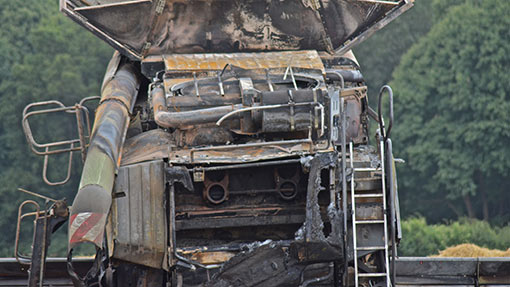
Firefighters battled to save a farmer’s crops after a blaze tore through this Claas Lexion combine harvester.
About 15 firefighters from across Dorset were called to tackle the fire in Witchampton.
Fire crews from Wimborne and Cranbourne found the Claas combine alight with part of the field also on fire.
They called for further help to stop the flames from spreading further and crews from Poole and Ferndown were dispatched.
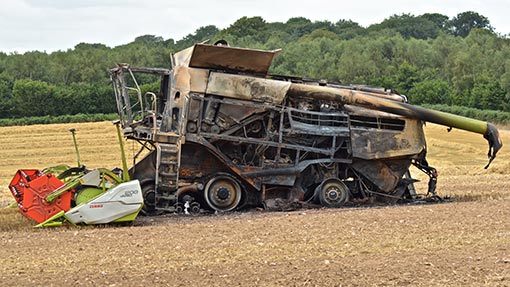
Firefighters wearing breathing apparatus used hoses and foam to bring the fire under control within two hours.
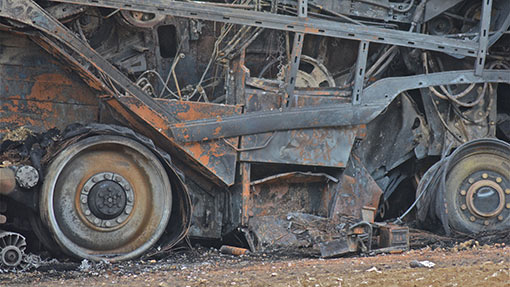
About half an acre of a field of cut straw also went up in smoke, but the firefighters managed to stop the flames from spreading further.
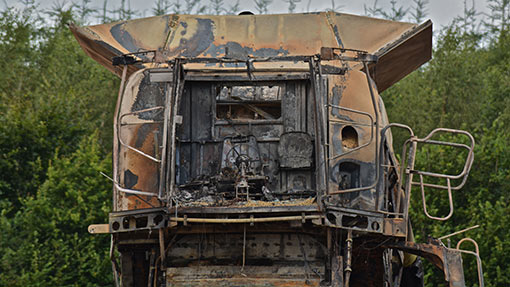
The cause of the fire on Wednesday afternoon (30 July) was thought to be mechanical. The Claas combine was gutted.
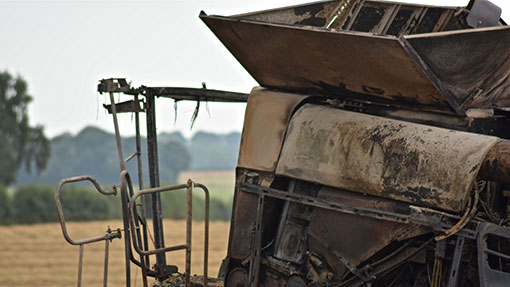
A spokesman for Dorset Fire and Rescue Service said firefighters returned to the fire scene the following morning to inspect the field and make sure the fire had not spread.
The combine fire in Dorset was one of several serious incidents recorded in a turbulent week during harvest.
Read also: 10 shortcuts that could kill you at harvest time
In a similar incident, firefighters battled flames in a field of barley after the engine compartment of a combine harvester ignited in Greatham, near Hartlepool, on Wednesday (30 July).
Police and fire crews were called to a combine harvester fire at Boulmer in Northumberland on Wednesday.
And following a barn fire in Holsworthy, Devon, on Tuesday morning (29 July), Devon Fire and Rescue Service issued guidance about the storage of hay bales.
The barn and 700 bales of hay were damaged in the fire and 20 firefighters were at the scene.
A fire spokesman said: “Generally, one of the areas of high risk is when dry and wet hay meets. The heat and humidity from the wet hay react with the dry hay and the insulation provided by the stack can allow a fire to start.
“Research suggests that most problems with spontaneous combustion start within the two weeks of the hay being stored, although combustion is still possible for a further six weeks.
“If your hay is a little too wet or green, you should start checking the stack after two days and continue daily for two weeks.
“The best way to check whether bales are overheating is to insert an extendable temperature probe or a thermometer on the end of some string into the niddle of the bales.”
Meanwhile, young farmer Ashley Herbert lost a hand in a farm machinery incident on a farm at Cluburn, near Penrith, Cumbria.
Mr Herbert, 24, was airlifted to hospital after his right hand up to the wrist was severed after becoming entangled in a forage harvester.
The HSE is investigating the incident.
Follow the latest harvest news and add your photos to our Harvest Highlights gallery
